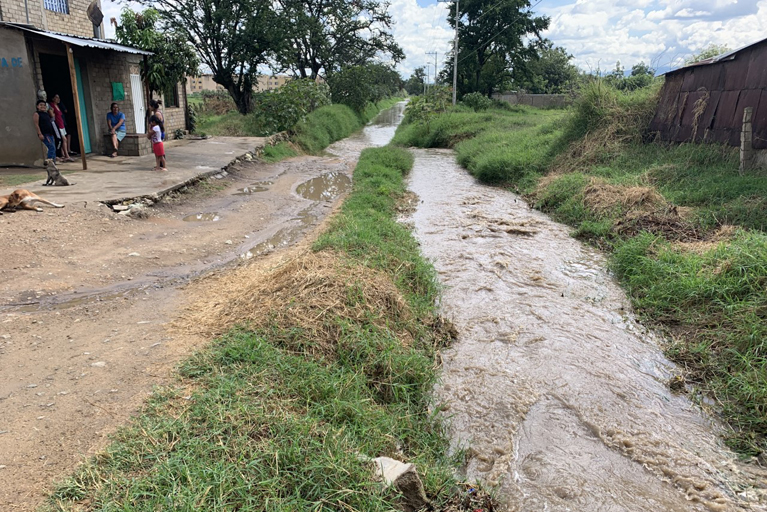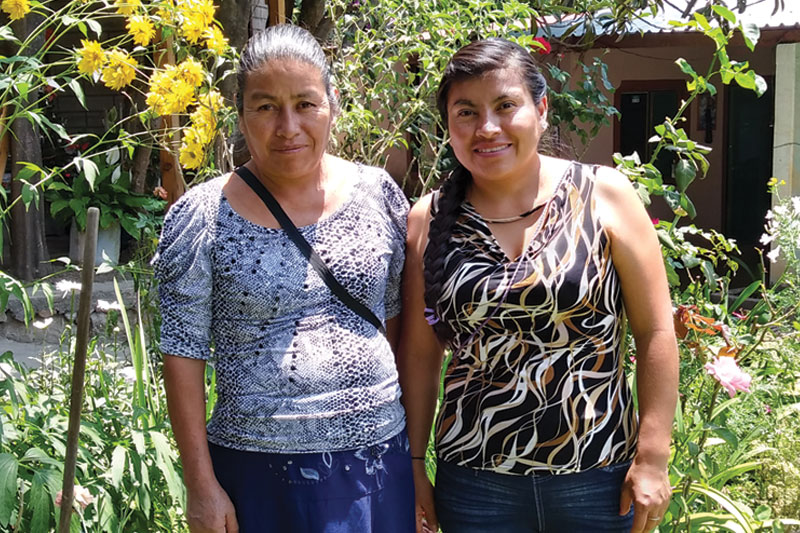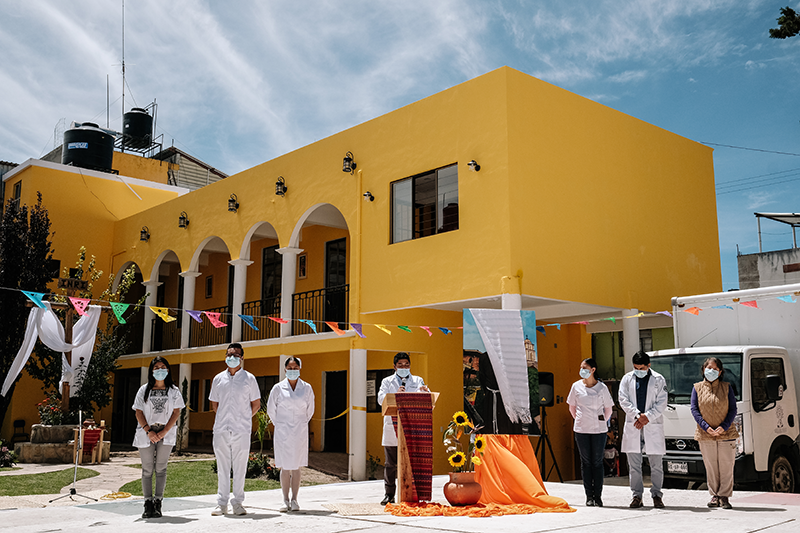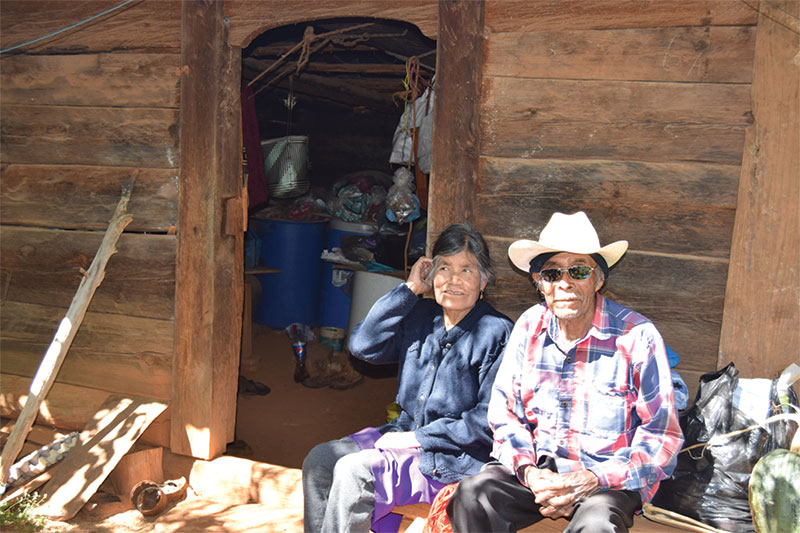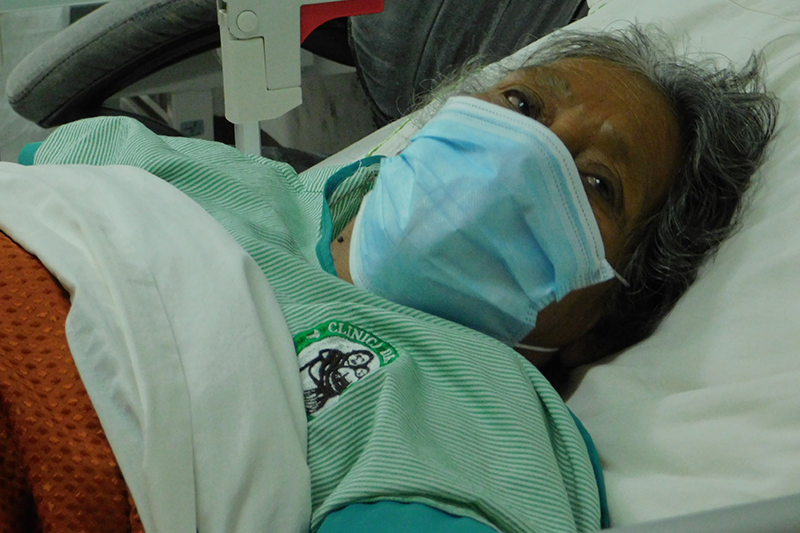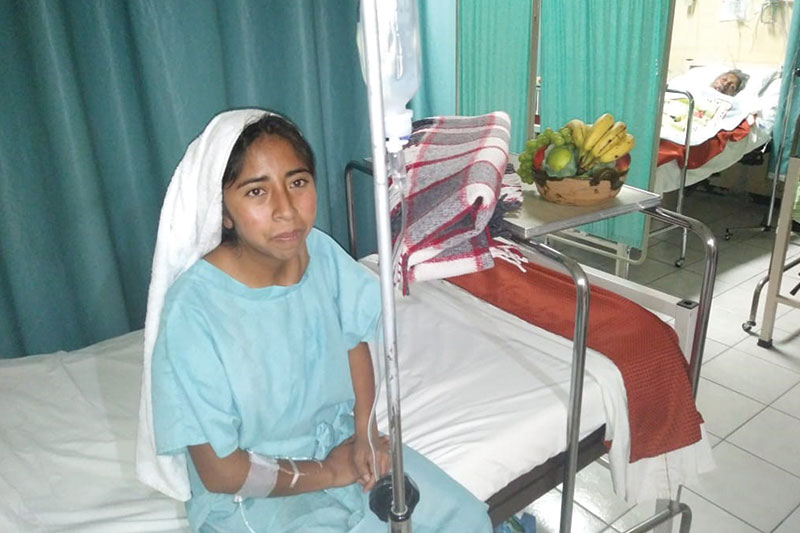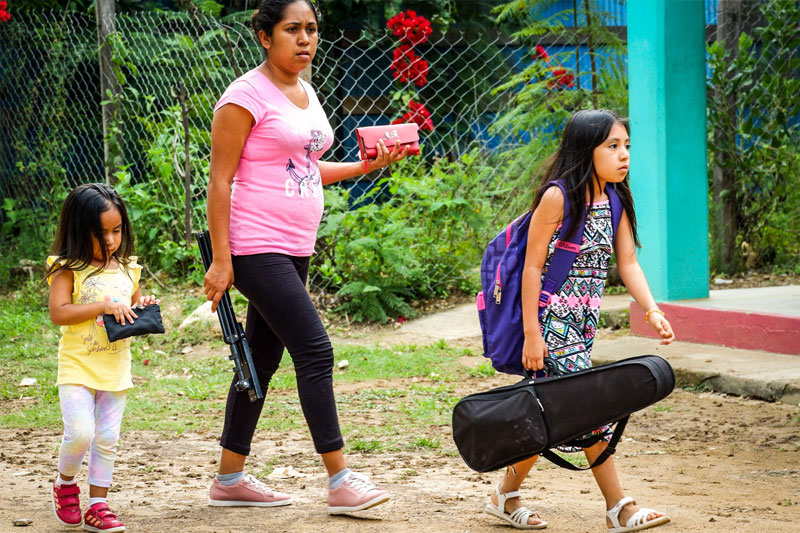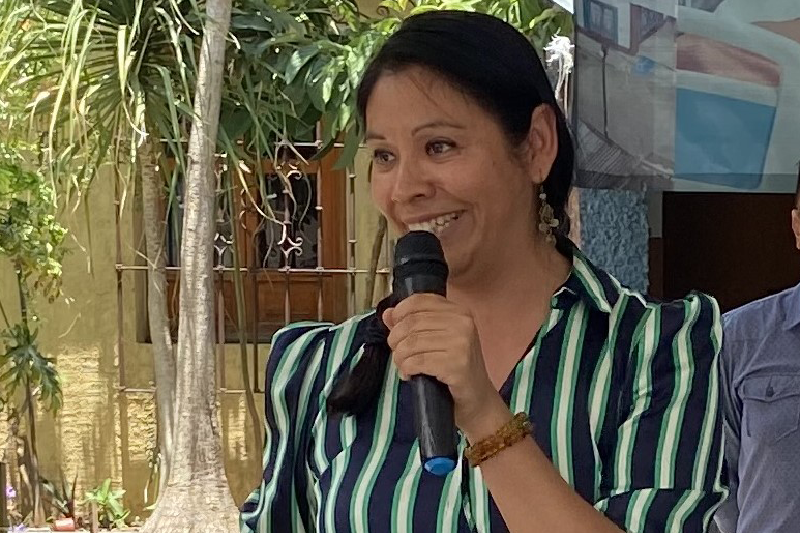
Gaby Chávez
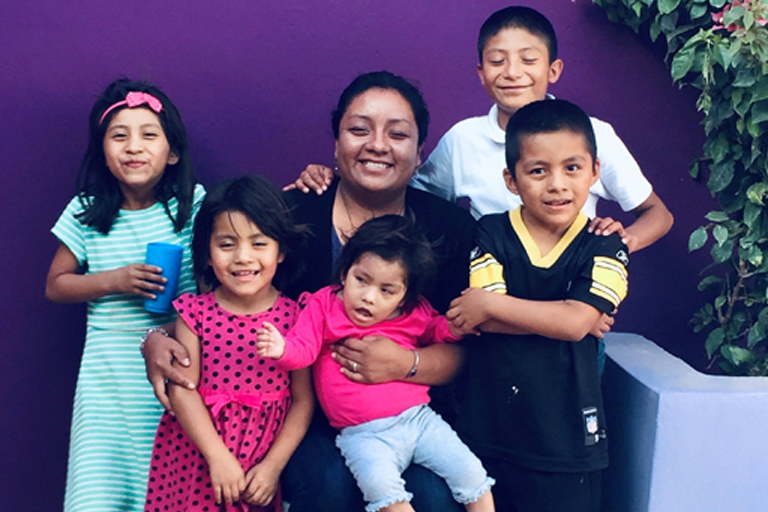
Gaby Chávez, Program Manager of Simply Smiles, an orphanage located in Vicente Guerrero, Oaxaca.
How did you come to arrive at Simply Smiles? “I myself grew up in an orphanage in Oaxaca. My parents are both alive, but I come from a village that only had an elementary school. My parents couldn’t afford to board me in the city to live and study, but an aunt knew of an orphanage that would allow me to go to junior high. At that age, I only assumed that those challenges were part of normal life. At the orphanage, I got to know a volunteer, now the founder of Simply Smiles, Bryan. He and his wife were instrumental in my life journey.”
In addition, Gaby reflected on her grandparents, whom she called pillars of her childhood. “They taught me never to let anyone make me feel less because I was indigenous or spoke an indigenous language.” She added, “Although my grandparents couldn’t have even known all that existed outside their village, they deeply believed that with dedication and effort, I could accomplish what I set out to do.”
At age 17, Gaby was ready to apply for college. However, 2006 was a tumultuous year in Oaxaca, with the political uprising and the schools not accepting new applicants. Fearing a lost opportunity, Bryan, with his friends and family, hatched a plan to allow Gaby to go to the States to study. She shared, “I had no idea what I was getting into.” But Gaby had courage and faith that “this is what my family would want” and accepted the opportunity. She recalls one of the first assignments her teacher gave the class to play “pretend shop.” Gaby laughed, “I didn’t even know what
U.S. money looked like . . . what is this thing, the quarter!” She studied hard and got the English certificate that would allow her to study and received an associate B.A. from Sacred Heart University in Connecticut.
How did you know you wanted to come back to Oaxaca? “While it is hard to describe in words, I felt a strong pull to return to Oaxaca and give back to people who were living in similar situations that I had known as a child.” Also, she wanted to be able to be closer to her family. “What if they got sick and I was so far away?” In 2015 she returned, and with tremendous determination, she started the new orphanage from the ground up. Today, it is a heartwarming home for the children.
As we wrapped up our conversation, I asked her about servant leadership. “I believe that leadership starts with listening. It is also about creating a home-like atmosphere so that people feel safe and supported as they develop their skills, talents, and emotions.”
She shared that life continues to impress her, “that there are still people with a heart for another, as was the experience with TASH.” She reflects on how we arrived when they had a specific need to build the additional boys’ and girls’ dormitories. She concluded: “I shared with the orphans at our home, as a way to fully appreciate the dorms, they (the dorms) will be here for a long time, not only to make living more comfortable for them, but also for orphans who will arrive next, and who may not have even been born yet.”

